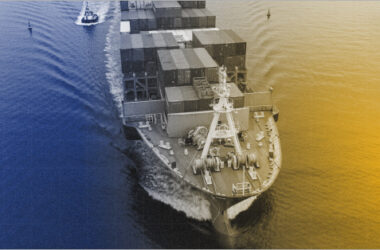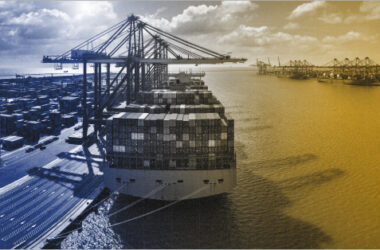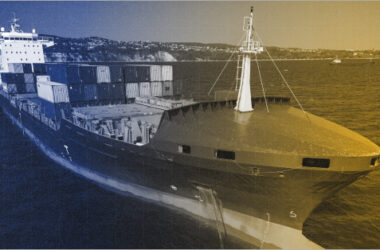Marine Insurance is a crucial tool in global trade and shipping, ensuring the safety of goods and minimising financial risks during transportation. Among the various types of Marine Insurance policies available in India, the Marine Open Policy stands out as a flexible and comprehensive solution for businesses engaged in frequent shipments. This blog explores the concept, features, benefits and relevance of a Marine Open Policy in India.
Understanding Marine Insurance
Marine Insurance provides financial protection against risks and damages associated with transportation of goods. It covers losses or damages to ships, cargo, terminals, and transport modes used to move goods from the point of origin to their final destination. Governed by the Marine Insurance Act of 1963, Marine Insurance plays a vital role in safeguarding the interests of traders, shipping companies, and logistics providers.
Types of Marine Insurance Policies
- Hull Insurance: Covers physical damage to ships or vessels, including machinery, due to perils like collisions, fire, or natural disasters.
- Cargo Insurance: Protects goods in transit against risks such as theft, loss, or damage during transportation by sea, air, or land.
- Freight Insurance: Covers the loss of freight revenue due to damage or non-delivery of goods.
- Voyage Policy: Provides coverage for a specific voyage from one port to another.
- Time Policy: Offers insurance for a vessel for a fixed period, typically up to one year.
- Mixed Policy: Combines features of both voyage and time policies, offering broader coverage.
- Open Policy: Designed for businesses with frequent shipments, offering continuous coverage for multiple consignments over a defined period.
- Valued and Unvalued Policies: A valued policy has a pre-agreed insured value, while an unvalued policy determines the value at the time of loss.
- Floating Policy: Covers multiple shipments under a single policy, typically used by exporters and importers.
What is a Marine Open Policy?
A Marine Open Policy is a flexible and comprehensive insurance policy designed for businesses that regularly transport goods. Unlike a specific voyage policy that covers only a single shipment, a Marine Open Policy provides continuous coverage for multiple shipments within the policy period, ensuring protection against transit-related risks across various modes, subject to the policy’s terms, conditions, and limits.
It is particularly beneficial for businesses involved in exports, imports, and domestic trade, as it eliminates the need to issue a separate policy for each consignment. This makes it a time-saving and cost-effective solution for frequent shipments.
Key Features of a Marine Open Policy
1. Continuous Coverage
The Marine Open Policy provides uninterrupted coverage for all shipments declared under the policy within the agreed period, typically one year.
2. Declaration of Shipments
The insured must declare each shipment in accordance with the policy terms. Some policies require declarations at the time of shipment, while others allow periodic declarations (monthly, quarterly, or as agreed with the insurer).
3. Flexibility
The policy is adaptable to various types of cargo and transportation modes, including sea, air, road, rail, and courier services.
4. Pre-determined Sum Insured
A limit of liability or sum insured is established, ensuring that coverage does not exceed the agreed amount.
5. Customisable Clauses
The Marine Open Policy can be tailored with specific clauses based on the business and goods, such as Institute Cargo Clauses (A, B, or C) for varying levels of coverage.
6. Premium Adjustments
Premium is initially charged based on estimated shipment values and adjusted periodically as per actual declarations. The insured must declare shipment details as per policy terms for premium reconciliation.
How Does a Marine Open Policy Work?
1. Policy Issuance
The insurer issues a Marine Open Policy for a fixed period (usually one year) based on estimated shipment values.
2. Declaration Process
The insured must declare shipment details in accordance with policy terms, either per shipment or periodically (monthly/quarterly).
3. Premium Payments
An initial premium is paid at the time of policy issuance. Additional premiums may be charged or adjusted based on the total shipment values declared.
4. Claim Settlement
In case of loss or damage during transit, the insured must immediately notify the insurer and obtain a survey report. Claims should be filed with supporting documents such as:
- Bill of lading
- Invoice
- Packing list
- Survey report
- Correspondence with carriers (if applicable)
Risks Covered by a Marine Open Policy
The risks covered depend on the chosen clauses and policy terms. However, common risks include:
1. Natural Disasters
Covers damage caused by storms, earthquakes, volcanic eruptions, tsunamis, and floods.
2. Accidents
Protection against damage due to collisions, sinking, stranding, overturning of the transport vessel, derailment of land conveyance, discharge of cargo at a port of distress, and other perils as per the chosen Institute Cargo Clauses (A, B, or C).
3. Theft and Pilferage
Covers loss due to theft, pilferage, or piracy during transit (only under Institute Cargo Clause A).
4. Fire and Explosion
Provides coverage for goods damaged or destroyed by fire or explosion during transit.
5. Jettison
Compensates for loss of goods deliberately thrown overboard to stabilise the vessel during an emergency.
6. General Average
Covers shared financial liability among cargo owners for losses incurred due to deliberate sacrifices or extraordinary expenses to save the vessel and cargo from a common peril.
Exclusions in a Marine Open Policy
While the policy provides broad coverage, certain exclusions apply, such as:
- Loss due to willful misconduct or negligence by the insured.
- Damage from improper packaging or inherent defects in the goods.
- War, strikes, riots, and civil commotion, unless covered under specific Institute War Clauses and Institute Strike Clauses.
- Confiscation by customs and delay in shipment, unless additional coverage is purchased.
- Nuclear risks or acts of terrorism, unless specifically included in the policy.
Who Can Avail a Marine Open Policy?
A Marine Open Policy is ideal for:
- Exporters and importers engaged in international trade.
- Domestic traders shipping goods across cities or states frequently.
- Logistics companies and freight forwarders handling cargo for clients.
- Manufacturers and distributors transporting raw materials or finished goods regularly.
- Banks and financial institutions financing trade transactions.
- E-commerce platforms managing frequent deliveries.
- Logistics service providers with contractual liability for cargo safety.
Benefits of a Marine Open Policy
1. Convenience
Businesses with frequent shipments save time and effort by avoiding the need to purchase a separate policy for each consignment.
2. Cost-Effectiveness
The continuous coverage of a Marine Open Policy reduces administrative expenses and allows for premium adjustments based on actual shipments.
3. Comprehensive Protection
Covers a wide range of transit-related risks, including natural disasters, theft, piracy, and accidents.
4. Customisability
Policies can be tailored to business needs, such as covering high-risk goods or specific transit routes.
5. Enhanced Risk Management
Continuous coverage ensures no shipment goes uninsured, reducing financial risks from unexpected losses.
6. Streamlined Documentation
A single policy reduces paperwork for each shipment, simplifying compliance and administrative processes.
Final Thoughts
A Marine Open Policy is a versatile and efficient solution for businesses engaged in frequent cargo transportation. By providing continuous coverage, minimising financial risks, and simplifying processes, it empowers businesses to focus on growth and operational excellence.
For Indian businesses navigating domestic and international trade, a Marine Open Policy is not just a protective measure—it’s a strategic advantage.








